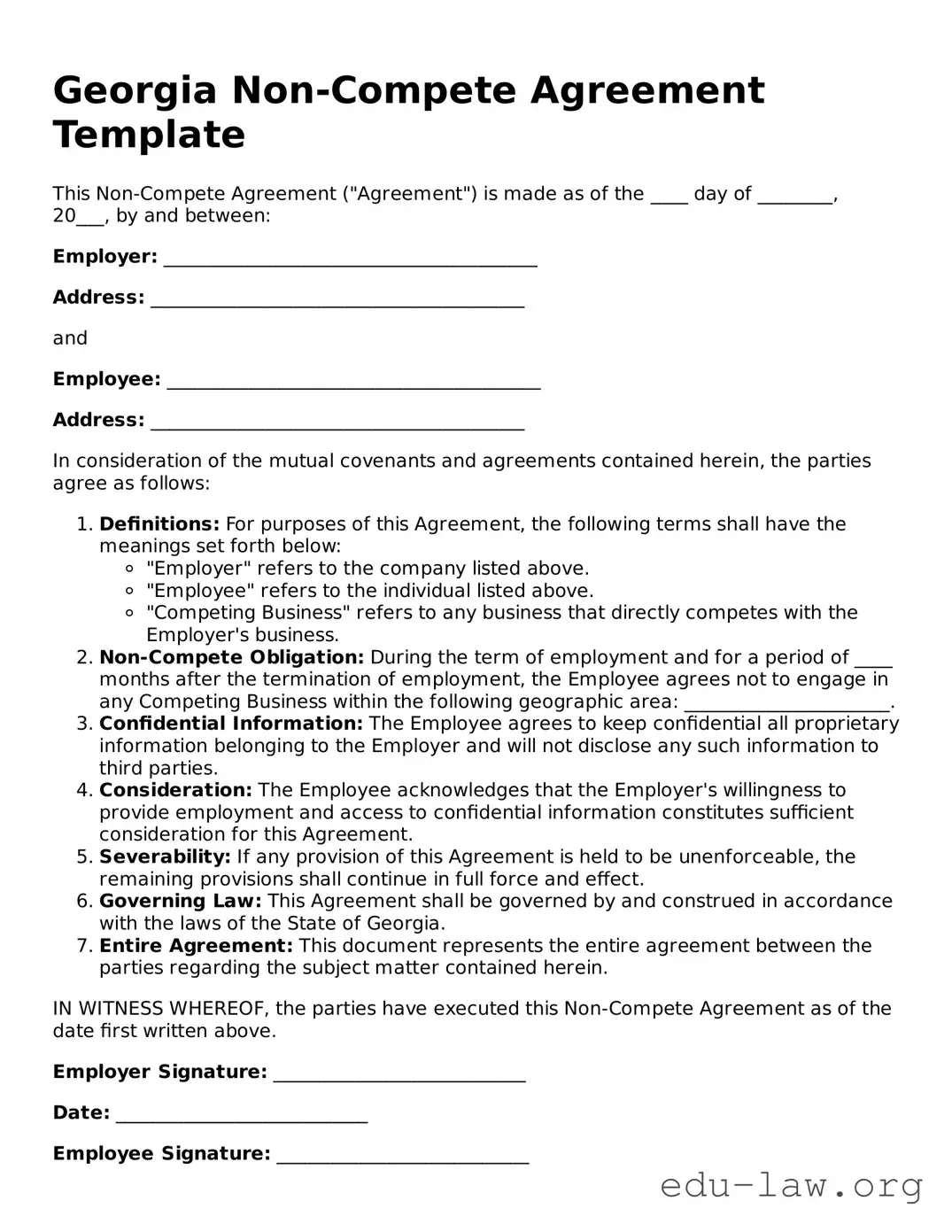What is a Non-compete Agreement in Georgia?
A Non-compete Agreement is a contract between an employer and an employee. This document restricts the employee from engaging in activities that directly compete with the employer’s business after leaving the company. In Georgia, these agreements serve to protect legitimate business interests while balancing the rights of the employee to seek employment.
Are Non-compete Agreements enforceable in Georgia?
Yes, Non-compete Agreements can be enforceable in Georgia, but they must meet specific requirements. The agreement should be reasonable in duration, geographical area, and restrictions on the type of work the employee can engage in. Courts will evaluate these factors to determine if they are not overly burdensome on the employee.
How long can a Non-compete Agreement last in Georgia?
The duration of a Non-compete Agreement in Georgia typically ranges from six months to two years, depending on the nature of the business and the role of the employee. Courts tend to favor shorter durations, especially if the restrictions significantly limit the employee's ability to find work.
What geographical area can be included in a Non-compete Agreement?
The geographical scope of a Non-compete Agreement must be reasonable and relevant to the employer’s business interests. For instance, if the employer operates within a specific city or region, the agreement should limit the employee's activities within that area. Large geographical restrictions may lead to unenforceability.
Can an employee be compensated for agreeing to a Non-compete Agreement?
Yes, compensation can be offered in exchange for signing a Non-compete Agreement. Employers can provide additional benefits, bonuses, or pay for training. However, it is crucial that the consideration offered is fair and clearly defined in the agreement to help ensure its enforceability.
What happens if an employee violates a Non-compete Agreement?
If an employee violates the terms of a Non-compete Agreement, the employer may seek legal action. This could involve requesting injunctions to prevent further breaches and pursuing damages for any losses incurred due to the violation. The outcome may depend on the specific language of the agreement and the circumstances surrounding the case.
Can Non-compete Agreements be negotiated?
Absolutely! Non-compete Agreements can be negotiated between the employer and employee. It’s wise for both parties to discuss terms openly. Employees should not hesitate to ask for changes to duration, geographical restrictions, or other terms they find too restrictive.
Are there any exceptions to enforceability in Georgia?
Yes, some exceptions exist. For example, the agreement may not be enforceable if it restricts an employee from working in their field of training or if it does not adequately protect legitimate business interests. Additionally, if the agreement imposes unreasonable restrictions, a court may refuse to enforce it.
What should I do if I have questions about my Non-compete Agreement?
If you have concerns or questions about a Non-compete Agreement, consulting with a legal professional is advisable. They can provide personalized guidance based on your situation, including how to comply with the agreement or explore options for negotiation.
